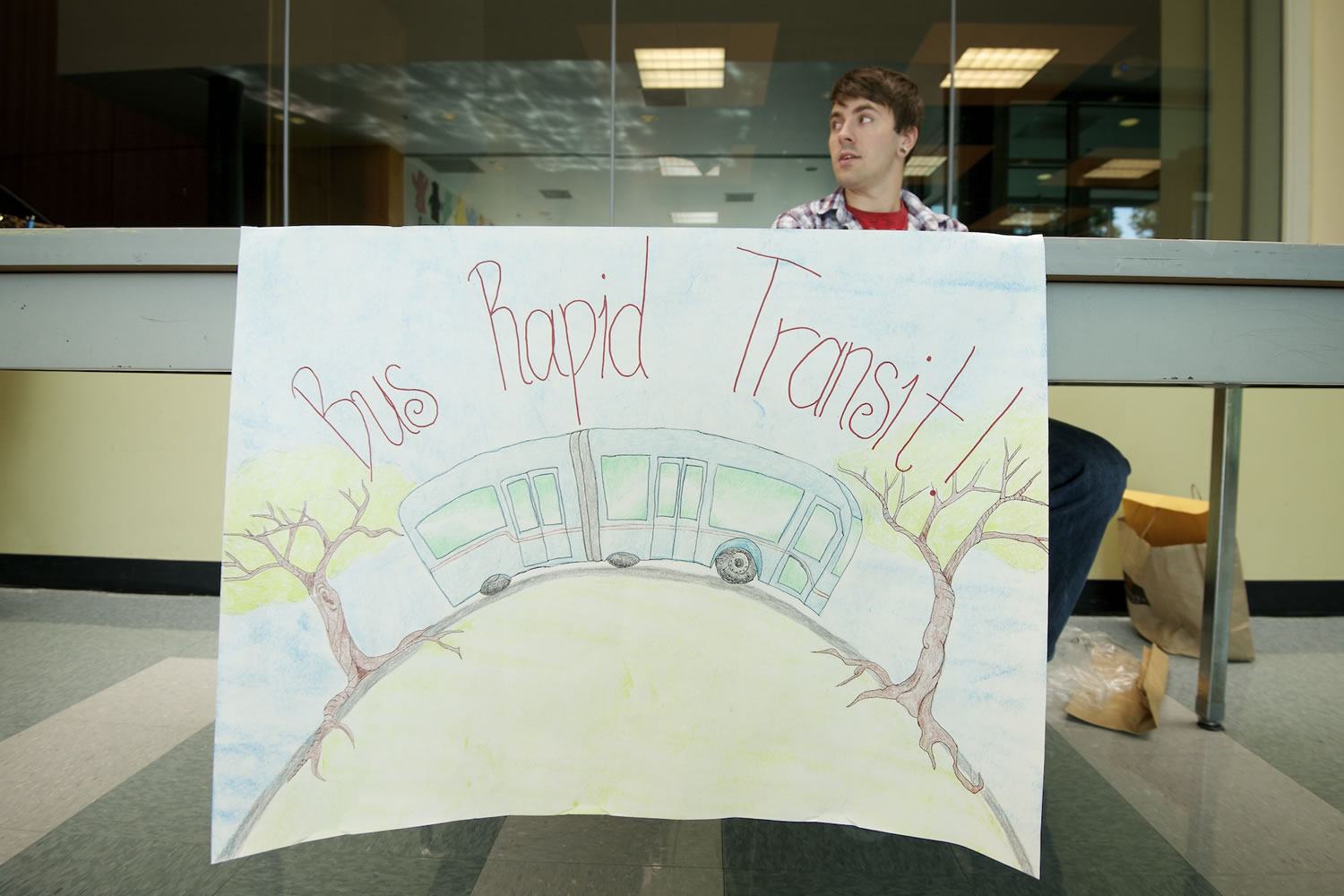The C-Tran Board of Directors cautiously advanced a proposed bus rapid transit line in Vancouver on Tuesday, keeping the project on track despite unanswered legal questions and no confirmed local funding source.
The board’s 6-2 vote mostly amounted to a procedural step in the project’s overall scope. Their action simply allows the agency to seek offers from qualified consultants to continue developing the concept for the city’s Fourth Plain corridor. But some board members showed reservations about moving forward on an effort that was dealt a blow by last year’s election.
In November, voters rejected a sales tax increase that would have provided local funding for both bus rapid transit and light rail, planned as part of the Columbia River Crossing. The result left two key questions for bus rapid transit in its wake: where C-Tran would find local money to help build it, and whether the agency needs voter approval to get it — if it moves forward at all.
The second of those questions has prompted conflicting legal opinions. The state Attorney General’s Office is expected to weigh in with its own take, but that may not happen until late May or June. At one point, it appeared a majority of board members favored delaying action on bus rapid transit until that happens.
“I think it’s a great project, but I’m not comfortable moving forward until we have a clear understanding of our legal responsibilities,” said Clark County Commissioner Steve Stuart.
County Commissioner David Madore, among others, has said C-Tran needs clear approval from voters before proceeding. Continuing to advance a concept
after the election result, Madore said Tuesday, is going against voters’ will and “putting the cart before the horse.”
C-Tran project manager Chuck Green said punting on the issue Tuesday could have pushed the project’s completion from 2015 to 2016. C-Tran Executive Director Jeff Hamm suggested staying on track for now — Tuesday’s vote required no financial commitment — and changing course later if new legal information comes to light. Other key decision points will still arrive this year before C-Tran fully commits to the project, he said.
Ultimately, the board decided to keep the project moving. Only Madore and Washougal City Councilor Connie Jo Freeman voted no. Battle Ground City Councilor Bill Ganley, C-Tran’s board chair, abstained.
C-Tran first floated bus rapid transit in 2011. Agency officials and a citizen committee spent much of last year shaping the concept into a more defined vision for Vancouver’s crowded Fourth Plain corridor. Fourth Plain is C-Tran’s busiest route, tallying a total bus ridership of close to 2 million in 2012.
The system would use larger vehicles, raised boarding platforms, specialized signals and other features in an effort to move passengers more efficiently and reliably. Putting a bus rapid transit line along the Fourth Plain corridor between downtown and the Westfield Vancouver mall would cost about $49 million, according to C-Tran, with up to 80 percent of that covered by a federal grant.
Bus rapid transit supporters have recently made a renewed push for the system. A group of citizens last month presented C-Tran leaders with a petition of more than 250 signatures in support of the plan. Several neighborhood associations have also jumped on board.
Backers have called for C-Tran to use its own resources, without raising taxes, to pay the local share of about $6 million. C-Tran officials have indicated the agency has enough in its uncommitted reserves to do just that.
If built, the bus rapid transit system would actually cost less to operate than the sections of the No. 4 and No. 44 bus routes it would replace, according to C-Tran. That would free up as much as $800,000 per year to invest elsewhere in the C-Tran system, according to the agency.
Eric Florip: 360-735-4541; http://twitter.com/col_enviro; eric.florip@columbian.com




